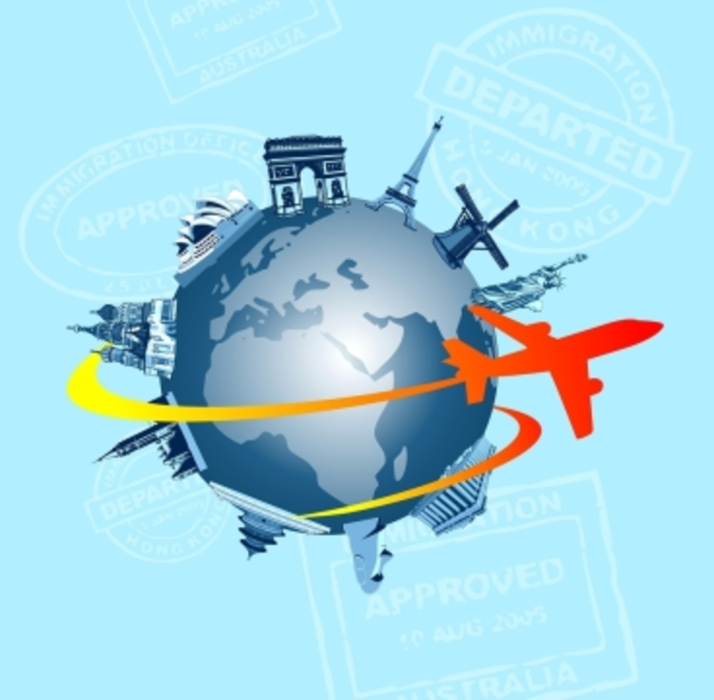For today’s travelers, sharing “tales from the road” online has become as commonplace as sending a postcard or buying a souvenir. If Jane has the best crab cake everwhile she’s on vacation, she’ll tell the world, posting about it to her fellow foodies on Yelp, complimenting the chef on Twitter, and liking the restaurant on Facebook. Or maybe Joe loved the view from the eco-lodge where his family stayed last week. He’s likely to rave about it on TripAdvisor—and even post a few pictures along with his praise.
These days, more and more travelers are sharing their experiences online, and as a result, social media is shaping consumer opinion and driving traffic to (and from) businesses all around the world. We hear a lot about how social media allows negative comments to adhere to a brand image, and that is true and a real concern; but the only way to tame the impact of negative comments is to have a lot of positive comments surrounding them.
How do we start to build up those positive comments? One way is through analyzing the wealth of data gleaned from social media conversations. Think about it: The more companies are able to analyze and leverage the unstructured data from social media, the more relevant and satisfying their communications with consumers are going to be, and the more likely those customers are to give positive feedback.
Indeed, rather than run for cover, smart companies are embracing social platforms and digital marketing strategies as powerful tools to help promote their brands and to build trust and confidence. Travel companies have a strong advantage in this space, since travel brands are built on loyalty, and loyalty is built on great experiences—your own, or others you trust. Nowhere else is it more important for consumers to see positive comments from “people like them” rather than just hearing the company view. The travel industry is fiercely competitive and very price driven. An environment clearly benefiting from the embrace of consumer reviews.
The hotelier Best Western, for example, partners with Medallia to collect guest feedback and monitor customer sentiment in social channels and on travel review sites (and yes, that includes insights about competitors, as well). With more than 4,000 hotels in 100 countries, Best Western recognizes that participation in online social networks allows the company valuable opportunities to engage with travelers with greater relevance, improve the customer experience, and deliver brand value.
In short, Best Western is embracing the responsible use of social media data because engagement on digital channels has become a huge plus for the brand. The vast majority of online conversations are positive–and they’re happening all day, every day, all across the globe.
A quick peek at Best Western’s travel blog, www.Youmustbetrippin.com, reveals how the company uses real-life experiences (and photos) to promote the joys of travel. This summer, for example, Jason F. is riding his motorcycle across New England and sharing the journey with readers. Plus, Best Western uses its Facebook page to post weekly travel trivia contests, surveys, and features like “Travel Caption Saturday,” in addition to company news and customer care. You’ll see the same level of engagement in Best Western’s Twitter stream.
Other companies are following suit, using a full range of digital marketing initiatives aimed at reaching out to customers, who in turn, reinforce brand messages with their posts, Tweets, photos, and reviews.
Air France introduced a free iPhone app that lets customers organize their trip via mobile phone. Air France fliers can purchase tickets, check in, and keep informed of flight information, all in real time.
Air France currently has more than 800,000 friends on Facebook (wow!), where the airline posts company news and engages its customers with frequent quizzes. “How many wheels are there on an A380?” one post asks. More than three thousand people responded (more, wow!). Passengers are encouraged to upload their travel photos at the Air France app.
Airbnb, which lists properties for rent all over the world, has created a new customer-generated service called “Wish List.” It encourages people to visit the site and create a wish list of places they’d like to go. Then, Airbnb posts some of these wish lists on its site, letting real customers do an honest job of promoting the site’s offerings. Jack, for example, dreams of staying in a houseboat on an Amsterdam canal. Visitors to the site can read reviews of each property and get inspired to start their own wish lists. (I’ll admit it: After a few clicks, I was daydreaming about my next vacation!)
Travel companies know that word of mouth is often their most powerful marketing tool, and now they’re using digital channels and the data they provide to help everyone from business travelers to vacationers share their experiences with a worldwide online audience. The key, as with all social media initiatives, is for companies to be authentic and responsive. Done right, and responsibly, you, too, can use social networks, apps, and online reviews to showcase your customer service, improve the customer experience, and drive sales.
Travel or other industries, how are you using digital and social data to connect with your customers?
| Stephanie Miller is VP of member relations and chief listening officer at the Direct Marketing Association. She is a relentless customer advocate and a champion for marketers creating memorable online experiences. A digital marketing expert, she helps responsible data-driven marketers connect with the people, resources, and ideas they need to optimize response and revenue. |







